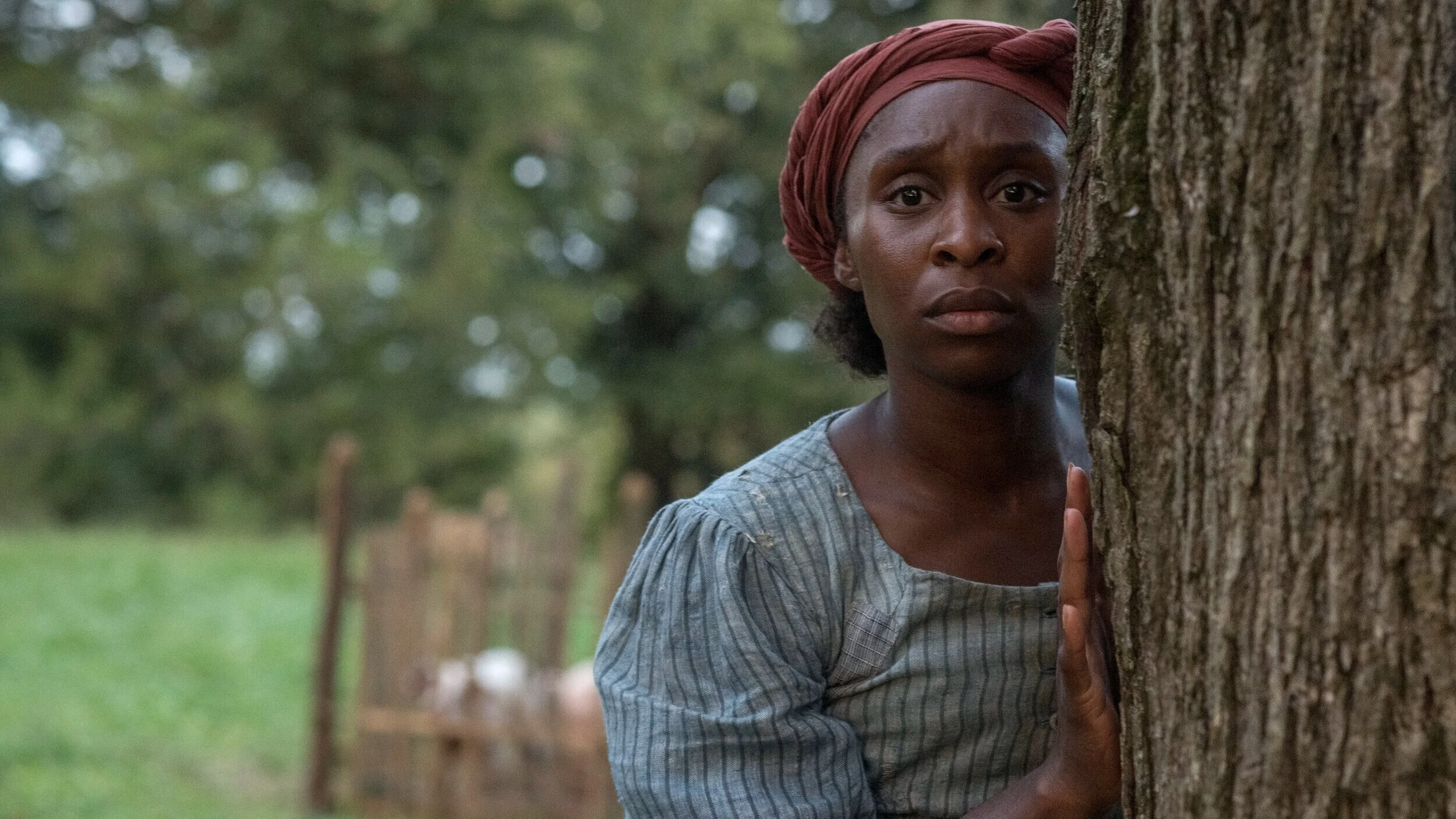Harriet
Black cinema finds a heroine well worth celebrating.
Cynthia Erivo
This film about the extraordinary life of Harriet Tubman, a woman who by the time of her death in 1913 had lived into her nineties, admits at the close that some of the material has been fictionalised. Unfortunately, that comes as no surprise since Harriet, as written by Gregory Allen Howard and its director Kasi Lemmons, is a movie that in its second half seems fictional far too often. But, even if that hadn't been the case, telling Harriet's story would have posed problems for the writer despite the fact that it is obviously a tale that deserved to be told. Having been born into slavery in Maryland, she journeyed to Pennsylvania in her late twenties to claim her freedom, became a major figure in the Underground Railroad which enabled slaves to escape to free territories, took part in the American Civil War even leading a rescue raid in 1863 and participated subsequently in the campaign for women's suffrage. It was a full life not easily encompassed in a single film, even one lasting just over two hours.
In point of fact the first half of Harriet concentrates on events in 1849 when Harriet, then known as Minty, realised that, unlike her husband Jun (CJ McBath) who was a free man, she would herself never become free unless she fled from her master. The story of her escape to Philadelphia on foot (about 100 miles) and her subsequent attempt to return to fetch her husband makes for a cohesive drama. The tone may be that of popular cinema (in contrast to, say, 12 Years a Slave which was more an arthouse film, albeit one that crossed over) but it works, and it is much aided by the excellent performance given by Cynthia Erivo in the titular role. Erivo stood out in two ensemble movies made in 2018, Bad Times at the El Royale and Widows, and here proves fully capable of taking on a star part.
Had the film started later in Tubman's life and then gone into flashback some useful indication could have been given as to the likely shape that the narrative would take. But, as it is, that doesn't happen and in the absence of a clear story arc momentum is lost in the film's middle stages. Having opted in fact to cover her later life only in very brief scenes or through written statements at the close, Harriet does find further events in 1858 capable of building to a big climax. But the problem here is that these scenes, including a dramatic confrontation with the evil son of her former master (a role played by Joe Alwyn), come across as being more and more like fiction and less and less like real life. If the film has earlier been rather uneasy in conveying persuasively Harriet's deeply religious nature and her reliance on guidance from God (a difficult river crossing seems to take its tone from Cecil B. DeMille's 1956 epic The Ten Commandments!), the later stages are the ones that seem increasingly unworthy of the subject matter. Nevertheless, Erivo is well supported by the other players and, albeit less memorably than she deserved, this film does bring to wider public attention a heroine whose extraordinary life is one unfamiliar to many of us.
MANSEL STIMPSON
Cast: Cynthia Erivo, Leslie Odom Jr, Joe Alwyn, Janelle Monáe, Omar J. Dorsey, CJ McBath, Henry Hunter Hill, Clarke Peters, Vanessa Bell Calloway, Vondie Curtis-Hall, Tory Kittles, William L. Thomas, Tim Guinee.
Dir Kasi Lemmons, Pro Debra Martin Chase, Daniela Taplin Lundberg and Gregory Allen Howard, Screenplay Gregory Allen Howard and Kasi Lemmons, from a story by Gregory Allen Howard, Ph John Toll, Pro Des Warren Alan Young, Ed Wyatt Smith, Music Terence Blanchard, Costumes Paul Tazewell, Dialect coach Denise Woods.
Focus Features/Perfect World Pictures/Stay Gold Features/Debra Martin Chase-Universal Pictures.
126 mins. USA. 2019. Rel: 22 November 2019. Cert. 12A.


